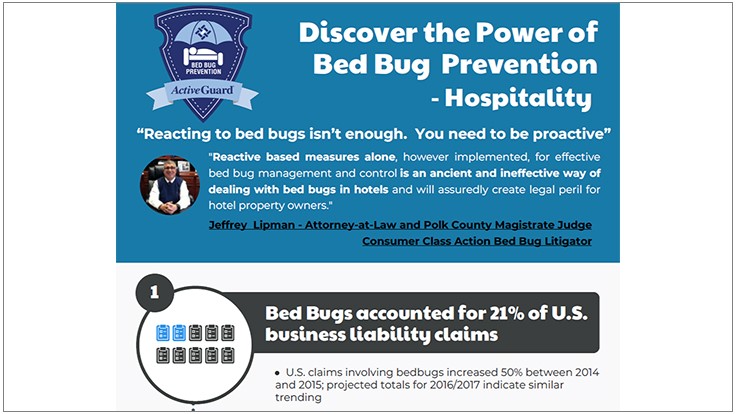Tips For Keeping Outdoor Bugs Away From Your Yard
Tips For Keeping Outdoor Bugs Away From Your Yard
Blog Article
Authored By-Gupta Espersen
Envision your garden as a haven, an area of serenity and beauty. Nevertheless, https://how-to-remove-smell-rat06173.blogthisbiz.com/32941843/undetected-threats-pests-beyond-bed-vermin-that-could-be-hiding-in-your-home of outside insects can swiftly interrupt this idyllic photo. What happens if there were simple yet reliable ways to maintain these unwelcome site visitors at bay and shield your yard sanctuary? By complying with a couple of useful tips and carrying out natural methods, you can produce an unified exterior space where your plants can grow uninterrupted.
Natural Parasite Deterrents
To keep parasites far from your yard normally, plant fragrant herbs like mint and lavender. These aromatic plants not just include elegance to your garden yet likewise function as effective bug deterrents. Pests like mosquitoes, flies, and even some garden-damaging insects are repelled by the solid scents sent out by these herbs. Just positioning them tactically around your garden can aid create an all-natural obstacle against undesirable pests.
In https://how-to-remove-raccoons-fr84061.thenerdsblog.com/32584177/client-success-stories-real-life-knowledge-with-parasite-pest-control-expert-providers to mint and lavender, take into consideration growing other natural herbs like rosemary, basil, and lemongrass to additionally improve your garden's pest-proofing capacities. These natural herbs not just act as all-natural repellents but additionally have actually the added advantage of being useful in cooking or crafting home made solutions.
Strategic Plant Positioning
Think about the design of your garden and the types of plants you need to purposefully position them for maximum pest-proofing performance.
Beginning by organizing plants with comparable resistance to insects together. By doing this, you can produce a natural barrier that hinders bugs from spreading out throughout your yard.
In addition, putting pest-repelling plants like marigolds, lavender, or mint near more at risk plants can aid protect them. High plants, such as sunflowers or corn, can serve as a guard for shorter plants against parasites like rabbits or ground-dwelling bugs.
lawn flea treatment in mind to leave adequate area in between plants to enhance air blood circulation and reduce the threat of illness that pests could carry.
Moreover, consider planting strong-smelling herbs like rosemary or basil near prone plants to perplex pests' senses and make it harder for them to locate their targets.
Efficient Insect Control Methods
For combating garden parasites properly, implementing a multi-faceted bug control approach is important. Start by encouraging natural predators like birds, ladybugs, and praying mantises to help maintain parasite populaces in check. Introducing plants that attract these advantageous bugs can help in bug control. Furthermore, practicing natural flea control by eliminating debris and weeds where parasites might hide can make your yard much less congenial to undesirable site visitors.
Think about utilizing physical barriers such as row cover fabrics or netting to secure prone plants from parasites like caterpillars and birds. Applying natural chemicals like neem oil or insecticidal soap can also be effective against certain bugs while being less dangerous to helpful insects and the setting. It's critical to rotate your crops each period to avoid the build-up of parasite populations that target particular plants.
Regularly evaluate your plants for indicators of parasite damages so you can act promptly. By incorporating these methods and staying attentive, you can properly regulate garden pests and enjoy a flourishing, pest-free garden.
Conclusion
So, there you have it - with the right methods, you can maintain pesky outdoor parasites far from your yard and help your plants grow.
Did you recognize that growing mint has been revealed to ward off mosquitoes and other bugs, minimizing the requirement for hazardous chemicals by up to 60%?
By incorporating all-natural deterrents and clever growing strategies, you can create a gorgeous and pest-resistant garden sanctuary for you to delight in.
